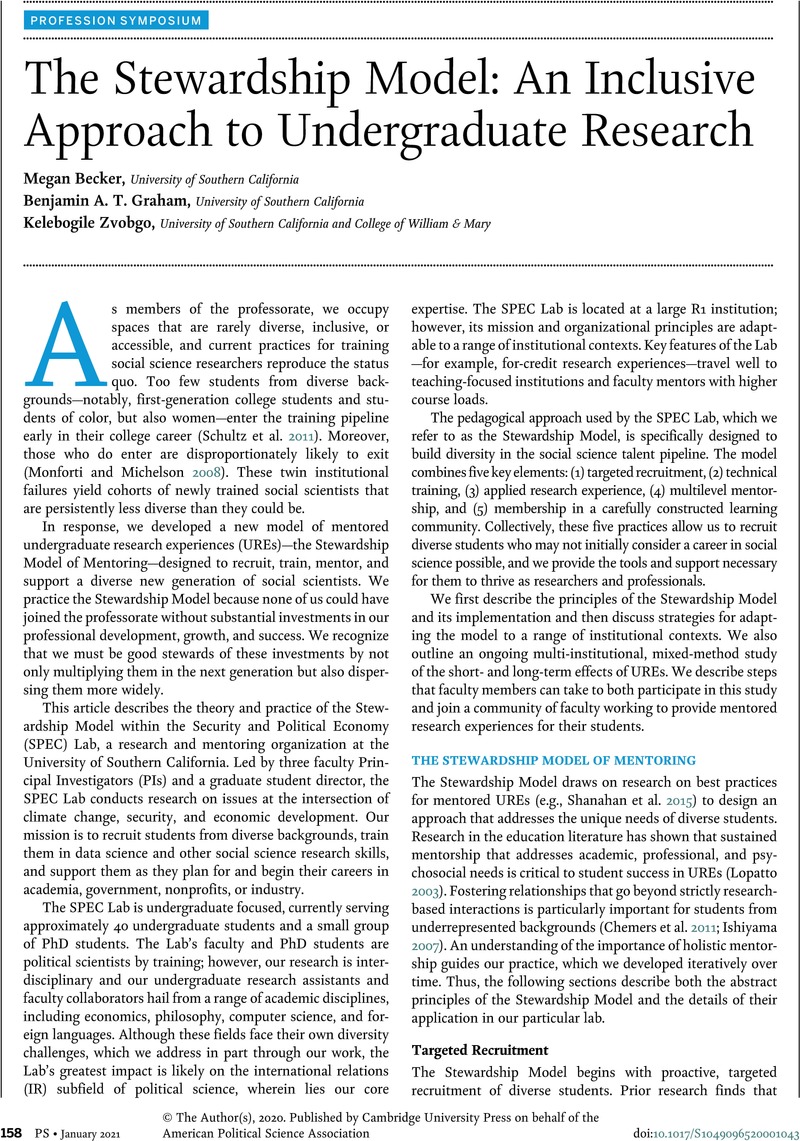Crossref Citations
This article has been cited by the following publications. This list is generated based on data provided by Crossref.
Bauer, Kelly
2023.
The Palgrave Handbook of Teaching and Research in Political Science.
p.
149.
Zvobgo, Kelebogile
2024.
Teaching Political Science and International Relations for Early Career Instructors.
p.
125.



